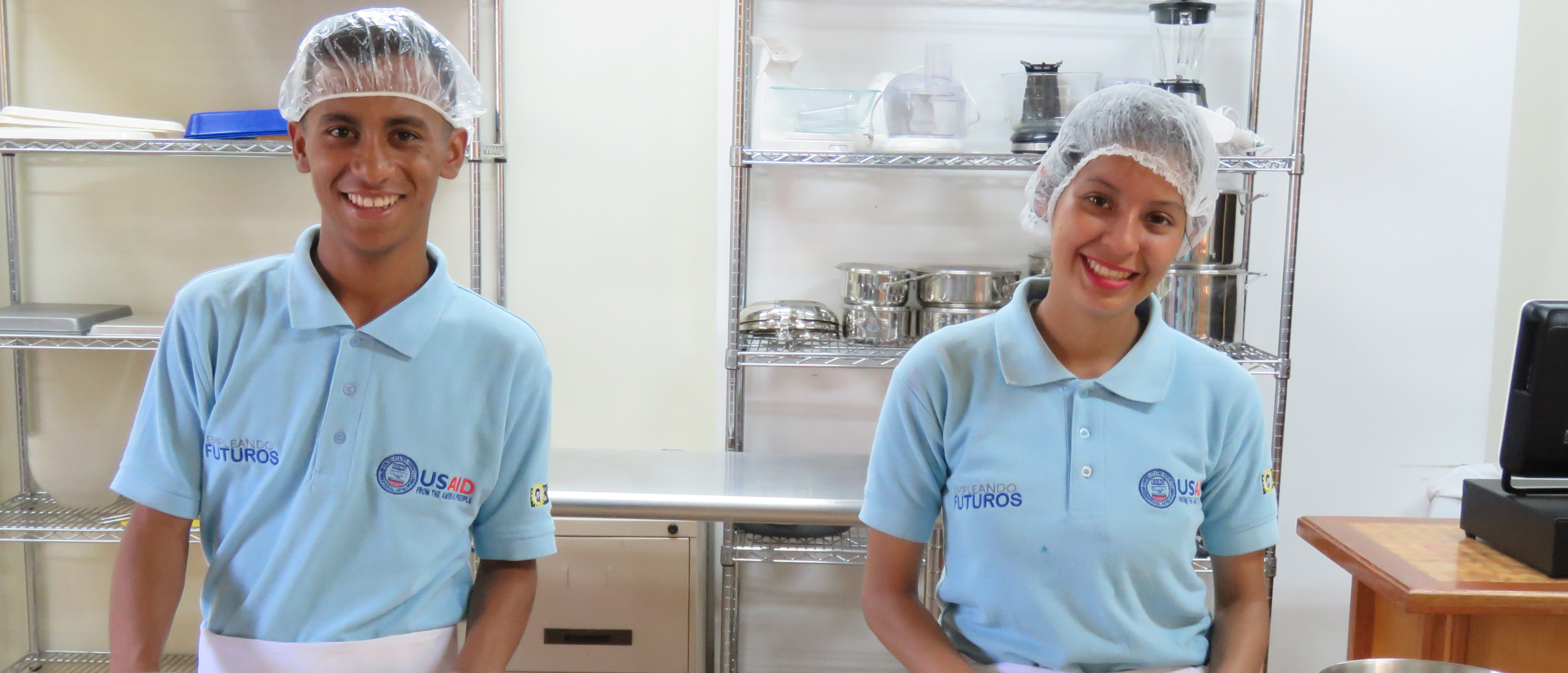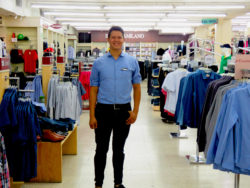
Engaging the Private Sector to Employ Youth in Honduras
Honduras, with one of the world’s highest murder rates, is often regarded as one of the most dangerous countries in the world. A large part of this violence is related to gangs. Gang activity is widespread throughout the country, and has serious consequences for young people. Compounding this issue is the lack of employment opportunities for youth, especially in the country’s high-crime “hot spots”; more than 50 percent of youth in Honduras are unemployed or underemployed, although this rate is higher in more violent areas. Youth are pulled into gangs at a young age, sometimes forced to join, other times choosing to join out of a need to belong or a sense of security. Later, when young men and women leave gangs and look for employment, they find it is difficult to be hired, as employers discriminate against former gang members, citizens with ties to gangs, and even people living in communities with known gang activity.
In Honduras, 169,000 youth begin the search for employment each year, but more than half of them end up unemployed or underemployed. Rony Mendoza was no exception. In late 2017, Rony was working sporadically in public transportation, a dangerous job with few growth prospects. Even though he enjoyed working on automobile engines, he was always looking for something more stable. Growing up in Flor de Campo, though, made finding stable work even more challenging. Flor de Campo is a high-risk community in Tegucigalpa, the capital of Honduras. Even if they have never engaged in illegal activity, youth from Flor de Campo carry the stereotype that they are high-risk when looking for jobs.
One day, Rony came across an advertisement for Empleando Futuros. The United States Agency for International Development (USAID)-funded Honduras Workforce Development Activity, Empleando Futuros (Employing Futures), is implemented by Banyan Global with subcontractor the Education Development Center (EDC). The project targets at-risk youth living in the five Honduran municipalities that are most affected by violence and crime.
Empleando Futuros’ goal is to increase youth employment by working through local communities and organizations to provide market-driven skills, mentoring and job placement support. The project focuses on developing long-lasting private sector partnerships to guide its job insertion strategy. This means designing the soft skills (e.g. how to greet clients) and technical skills (e.g. how to build an app) that firms need today to build their businesses for tomorrow.
In other words, Empleando Futuros can prepare young people like Rony to join the workforce, and even place them in jobs for which they are qualified. This is undoubtedly what appealed to Rony when he saw the ad. But how does Empleando Futuros know what companies in Honduras are looking for?
In May, the Empleando Futuros project joined USAID/Honduras to present its Labor Market Assessment. The Labor Market Assessment identifies the private sector’s opportunities and challenges for youth from the most vulnerable areas of Honduras, focusing on the five municipalities in which Empleando Futuros works.

Rony Mendoza in his new role as sales clerk at a department store.
To prepare the assessment, researchers, economists and workforce development specialists interviewed and polled 300 small, medium and large businesses in the target municipalities. These companies were selected in order to guarantee their alignment with the economic growth plans promoted by the government of Honduras in their public-private engagement strategy, Plan 20/20. The sectors represented in the assessment are business process outsourcing and information technology, agro-industry, tourism, intermediate manufacturing, and textiles.
The Labor Market Assessment found that companies in the five focus sectors say they hire youth who come from vulnerable areas, meaning they do not discriminate in the hiring process. However, the study also found that security problems in the country have led to stigmatization of certain neighborhoods and its inhabitants, particularly young men and women, which has in turn affected their educational and job placement opportunities. Security concerns also keep youth in these areas from travelling to work outside of certain times.
Furthermore, the Labor Market Assessment identified that socioemotional maturity, or “soft skills,” is a key area required by companies. If candidates have these skills, then they can be taught the technical skills required for the job.
After Rony completed his life skills and basic labor competencies training with Empleando Futuros, he was given an opportunity to choose from various career paths that aligned with findings from the labor market assessment on private sector demand. He chose the Retail Sales Clerk track. When he finished his training at the vocational center, he was offered a chance to complete a practicum with Corporación MCC at their retail department store, Mendels. Rony stood out at Mendels because of his professionalism and enthusiasm. He was also noticed by Empleando Futuros staff, who asked Rony to serve as the Master of Ceremony for the launch of the Labor Market Assessment. Rony presided over a ceremony that included the USAID/Honduras Mission Director, several top business executives and over 200 attendees. After only one week at his practicum, the Mendels human resources department offered Rony a job as a sales clerk at their retail store in downtown Tegucigalpa, where he now works.
While life in the Empleando Futuros target communities is challenging and youth from those communities face difficulties entering the job market, there are companies like Corporación MCC who are willing to give people like Rony a chance. However, businesses need to know that they are hiring the right people, and that’s where Empleando Futuros comes in. By preparing youth to meet the needs of the labor market, Empleando Futuros increases employment opportunities for young people while also building the confidence of the private sector. Rony’s story is an example of how where you live no longer has to determine your future in Honduras.
